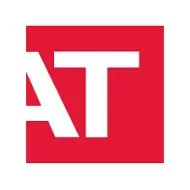An entirely new model for commerce known as a DAO (pronounced "Dow") has entered the mainstream with the rise of cryptocurrencies. But, as with most data innovations, the laws and regulations governing DAOs are still unclear as lawmakers and the public catch up to learn what exactly DAOs are.
What is a DAO?
DAO stands for "decentralized autonomous organization." It is an entity with no centralized authority, meaning no board of directors, corporate officers or stockholders. Instead, DAOs are loose associations where "[d]ecisions get made from the bottom-up, governed by a community organized around a specific set of rules enforced on a blockchain."
A DAO is typically affiliated with a specific cryptocurrency or some other digital token, and its members are most often people who own that particular type of token. (In crypto speak, a token is a unit of value stored on a blockchain. For example, any unit of cryptocurrency or any NFT is referred to as a token.)
Members have voting rights and may influence how the DAO is governed or how it operates by proposing and deciding on new rules to add to the blockchain. The DAO's rules are established by "smart contracts, which are essentially chunks of code that automatically execute whenever a set of criteria is met."
Similar to a traditional corporation, the DAO's rules are its bylaws, and its code is what enforces those bylaws. DAOs have untapped potential in the early stages of the Fourth Industrial Revolution: they provide opportunities for marketing and launching the sale of cryptocurrencies, nonfungible tokens (NFTs) and other digital assets, while eliminating substantial overhead costs and giving their members more direct control over the organization's operations.
While there are many ways to structure a DAO, a typical Delaware LLC operating agreement and its inherent flexibility lend themselves to the structure and innovation of the DAO. An operating agreement can require that members utilize a smart contract to operate any number of functions, including issuing interests, acting as the custodian for assets, registering "shares" or membership interests, counting votes, providing notice, etc. The typical Delaware LLC can also preserve the anonymity of DAO members and tackle issues of how to protect minority members in an unlimited fashion by simply drafting the innovative solutions for these issues into the operating agreement.
Freedom of contract is the cornerstone of Delaware corporate law. No other entity so clearly embodies this principle than the limited liability company. The Delaware LLC statute states that its guiding policy is "to give the maximum effect to the principle of freedom of contract and to the enforceability of [LLC] agreements." Two critical mechanisms help to effectuate this principle. First, the parties who form the entity have the greatest freedom to set the terms and conditions for the structure of the enterprise. Second, the public policy which the Delaware Courts are entrusted to protect, and do so with remarkable consistency, is the freedom of contract.
What do DAOs do?
In the simplest terms, DAOs are groups formed to pool group members' assets and achieve a common purpose, such as investing in startups, purchasing real estate, managing NFTs and buying big-ticket items. The DAOs themselves serve as "governing bodies that oversee the allocation of resources tied to the projects they are associated with and are also tasked with ensuring the long-term success of the project they support."
A couple of high-profile DAO examples include ConstitutionDAO—a group of thousands of crypto fans which raised more than $45 million in a week to bid on a rare copy of the U.S. Constitution during an auction held by Sotheby's—and MakerDAO—a decentralized finance platform that allows borrowers to use volatile cryptocurrency as collateral for loans of stablecoins (called DAI) that are pegged to the U.S. dollar.
Just as high-profile DAO examples already exist, so too do numerous instances of cyber attacks involving cryptocurrency. Late last year, BadgerDAO experienced a cybersecurity incident that resulted inlosses totaling at least $120 million. On March 29, it was announced that $600 million worth of cryptocurrency was stolen from a startup that operates an online gaming company with over 1 million daily users. Calls for DAO regulations have grown, since consumers bear the brunt of losses.
Regulating DAOs
Despite rapidly growing interest in DAOs among U.S. startup companies, the Securities and Exchange Commission (SEC) has shut down early attempts at using DAOs to offer and sell crypto tokens. The SEC's current position holds that many crypto tokens should face the same regulations as securities, which means DAOs that offer and sell crypto tokens must comply with securities regulations.
The problem, however, is that the decentralized, autonomous nature of DAOs makes it practically impossible for them to meet the SEC requirements. For instance, a DAO could not comply with the SEC rules requiring public companies to disclose the names and qualifications of their independent directors because DAOs do not have boards of directors. DAOs will also have a tough time providing audited financial statements to the SEC because a DAO's transactions are not stored in a centralized location.
Startups interested in launching DAOs must be cautious. Even in Wyoming, the first state to pass a law recognizing DAOs as a separate legal entity, DAOs have faced severe SEC scrutiny and, as a result, substantial financial and regulatory risks. The SEC effectively shut down Wyoming's first authorized DAO, American CryptoFed DAO, for failure to comply with the disclosure requirements and for making materially misleading statements. The SEC's scrutiny will only grow as more states recognize DAOs and more U.S.-based DAOs form.
Despite the scrutiny, the SEC has embraced digital assets, though according to some in the industry, maybe a little too tightly. In a 2021 "SEC Speaks" presentation, Commissioner Caroline Crenshaw stated that
I have a message I want digital asset market participants to hear: to move these markets forward there must be a meaningful exchange of ideas between innovators and regulators.
Significantly, The SEC FinHub was made into a standalone office within the Commission in 2018. The SEC is also currently receiving comments on how to effectuate a regulatory regime for the custody of digital asset securities by special purpose broker-dealers.
The key to a more normalized relationship with the regulators might be to use the Delaware LLC structure. Regulators, like the SEC, understand LLCs and Delaware. A Delaware LLC can hold the ownership and be the beneficiary of the funds raised in a token sale. Its functions and operation can be restricted to providing notice and recording the voting by the DAO community on certain designated activities of the DAO. Operating agreements can be used to limit fiduciary duties and liability for the community members of the DAO. A counterpoint to using an alternative entity structure is that it takes away the decentralized nature of the DAO, but that doesn't give enough credit to the flexibility of the Delaware LLC.
In sum...
DAOs offer vast potential for maximizing and redistributing shared profits among individuals, but their decentralized, autonomous nature makes it difficult for them to conform with U.S. securities laws. Unless the SEC adopts new regulations or Congress passes a new law, some centralization is needed to comply with securities regulations.
All is not lost for DAO advocates, however, because they need to remember: DAOs are decentralized, not uncentralized. Some centralized governance is necessary, no matter what, and DAOs need enough centralization to meet the SEC's requirements. Otherwise, DAOs will never be able to realize their true potential.
The content of this article is intended to provide a general guide to the subject matter. Specialist advice should be sought about your specific circumstances.




